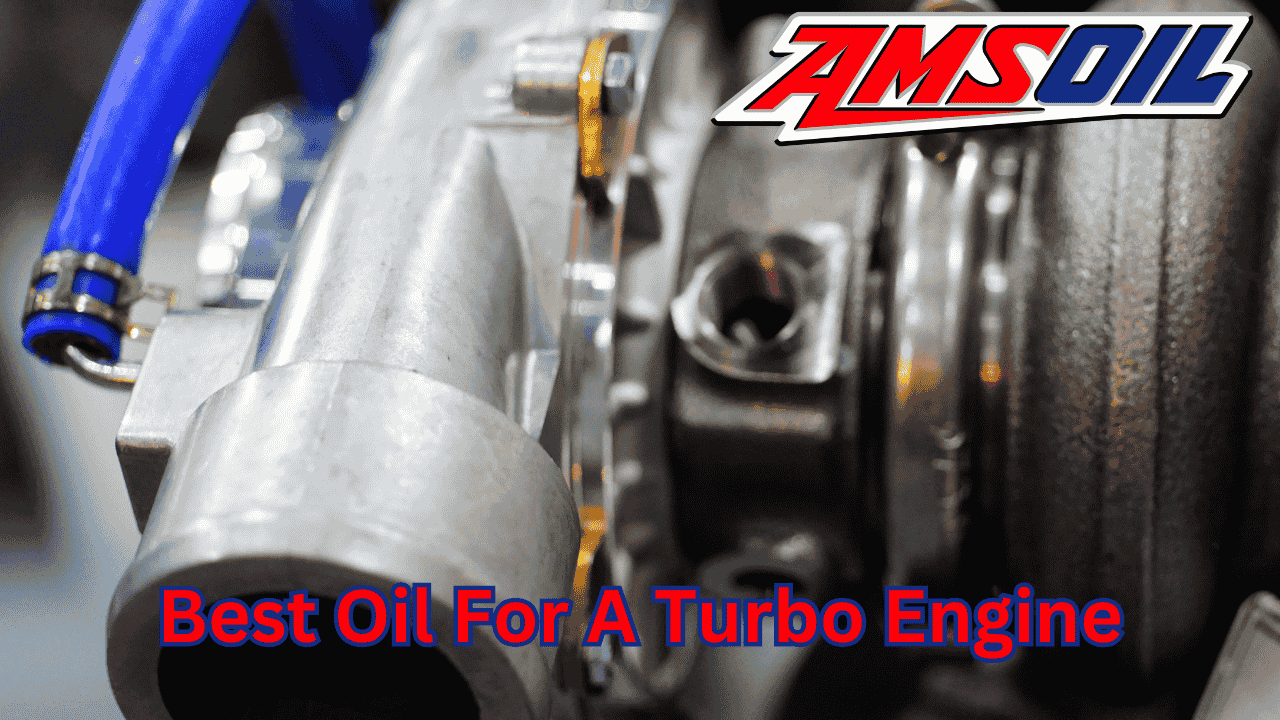Best Oil for a Turbo Engine | Protect Your Turbo with the Right Oil

Which Oils Should You Use for Your Turbocharged Car?
Turbocharged gasoline direct injection (T-GDI) engines are dominating the modern automotive landscape. They provide better fuel efficiency and power, but they also demand high-quality lubrication to withstand extreme heat and stress. Choosing the best oil for a turbo engine is crucial to prevent wear, deposits, and failures.
TL;DR
For optimal performance and protection of your turbocharged engine, choose a high-quality synthetic oil designed for turbo engines. Look for oils that prevent turbo coking, reduce the risk of LSPI (Low-Speed Pre-Ignition), and provide superior protection for T-GDI (Turbo Gasoline Direct Injection) engines. The best turbo engine oils will maintain engine efficiency, minimize sludge buildup, and ensure long-term durability under high-performance conditions.
Why Are Automakers Switching to Turbocharged Engines?
Have you noticed that most new vehicles have smaller engines with turbochargers? The shift is driven by Corporate Average Fuel Economy (CAFE) standards, requiring automakers to improve fuel efficiency or face penalties. Turbocharging allows manufacturers to maintain power while achieving better fuel economy. By 2026, fuel standards are expected to reach approximately 40 mpg, reinforcing the industry's reliance on turbo technology.
How Turbochargers Work
A turbocharger is an exhaust-driven compressor that forces more air into the intake manifold, increasing combustion efficiency. The process works as follows:
- Hot exhaust gases spin a turbine wheel at over 300,000 RPM.
- This motion drives a compressor wheel, forcing pressurized air into the cylinders.
- More oxygen in the combustion chamber leads to greater power output and improved fuel economy.
However, turbocharged engines also generate extreme heat and pressure, which can lead to oil breakdown, coking, and engine wear.
Heat: The Biggest Enemy of Turbo Engines
Turbochargers can reach temperatures exceeding 1,000°F (538ºC). If the oil is not formulated to handle these conditions, it can create deposits (turbo coking) that restrict oil flow and cause catastrophic failures.
How to Protect Your Turbo from Heat Damage:
- Use high-quality synthetic oil engineered for extreme temperatures.
- Allow your engine to idle for 1–2 minutes after driving to cool the turbo.
- Change your oil at recommended intervals to prevent deposit buildup.
Best Oil for a Turbo Engine: What to Look For
When selecting the best oil for a turbo engine, prioritize the following qualities:
✔ Full synthetic formula – Resists breakdown under high heat.
✔ High film strength – Prevents metal-to-metal contact.
✔ Detergent additives– Reduces deposit formation and turbo coking.
✔ Low volatility – Reduces oil consumption and maintains protection longer.
AMSOIL Signature Series Synthetic Motor Oil: 72% Cleaner Turbo Protection
AMSOIL Signature Series provides 72% better turbo cleanliness than required by GM dexos1 Gen 2 standards. It resists viscosity breakdown, reduces deposits, and ensures optimal performance under extreme conditions.
Understanding Gasoline Direct Injection (GDI) Technology
GDI engines improve fuel economy and power by injecting fuel directly into the combustion chamber rather than through intake ports. However, this design introduces issues such as:
- Fuel dilution – Unburned fuel can seep into the oil, reducing lubrication.
- Intake valve deposits – Without fuel washing over the valves, carbon buildup can reduce performance.
How to Combat GDI Issues
- Use a high-quality synthetic oil that resists fuel dilution.
- Add AMSOIL P.i. Performance Improver to clean fuel injectors and prevent buildup.
- Consider AMSOIL Upper Cylinder Lubricant to protect against wear and maintain efficiency.
LSPI: A Hidden Threat to Turbo & GDI Engines
Low-speed pre-ignition (LSPI) is a destructive engine event that occurs in T-GDI engines. LSPI can cause severe engine damage, leading to costly repairs. Fortunately, AMSOIL synthetic motor oils provide 100% protection against LSPI, exceeding GM dexos1 Gen 2 standards.
Final Thoughts | Protect Your Turbo Engine with the Right Oil
Turbocharged engines demand high-performance lubrication to withstand extreme temperatures and pressures. Using a premium synthetic oil like AMSOIL helps:
✅ Prevent turbo deposits and wear
✅ Improve fuel efficiency
✅ Extend engine life
🚀 Upgrade your oil today!
Where to Buy / Become a Dealer
Looking to buy AMSOIL?
Powered by Vyscocity
Built by Vyscocity to help you get the job done right — whether you're riding, wrenching, or running a fleet.
Explore our products, try our free tools, and let us know how it works for you.
❓ Still stuck? Ask your question on Facebook →
No fluff. Just function.










